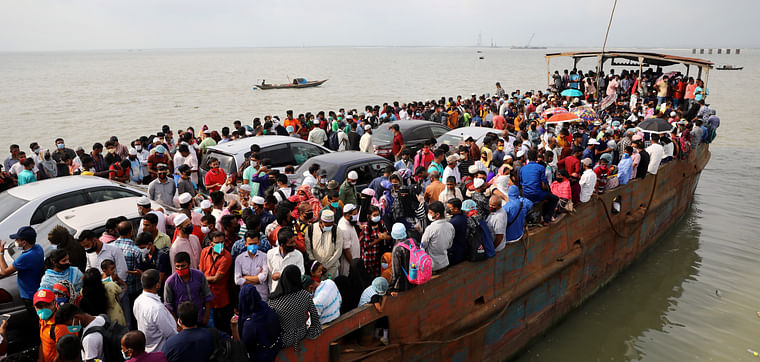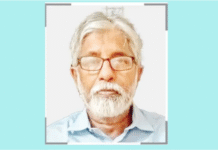
With the novel coronavirus spreading to all corners of Bangladesh, we are faced with two major concerns. One is the public movement before and after the holy Eid-ul-Azha, and the other is flood.
The purchase of sacrificial animals has already begun. The pictures of the cattle markets that have started appearing in the media are raising concerns.
A former director general of the health department has warned that the number of infections has increased since the last Eid-ul-Fitr. Infections are also expected to increase during and after the Eid-ul-Azha.
Meanwhile, the deteriorating flood situation in 12 districts of the country has also increased the risk of the spread of the virus, because it is very difficult for flood-affected people to maintain physical distancing. When the houses are flooded, many people have to take shelter on high roads, dams, schools and houses.
They have to spend day and night in a huddle. Such dense living is conducive to the growth of viral infections. It is not possible to prevent flooding, true but it is not plausible to think that there is no way to protect flood-affected people from the virus. People need to be saved, they need to find effective ways to protect their health even in the most unfavorable environment.
That committee has made some recommendations. For example, three days before and after Eid-ul-Azha, public transport should be strictly controlled so that people do not have to go from town to village in groups to celebrate Eid.
The crowd at the cattle markets and shopping should be controlled in accordance with the hygiene rules. It may be recalled here that even before the last Eid-ul-Fitr, it was said that people will celebrate Eid where they were residing at that moment. But the government’s order or advice was not obeyed. The main reason for the increase in infections after the last Eid was that a lot of people moved during the Eid holidays, went to the villages from the more infected cities and spread the infection to the villages as well.
If the decisions that had been taken were properly implemented, the situation would not have been so devastating. The chaos, confusion and lack of coordination in terms of implementation of the lockdown in the red zones also needs to be addressed quickly.
Emphasis should be placed on implementing the decisions taken by the experts and policy makers with sincere responsibility without wasting any time. Effective initiatives must be taken to ensure accountability of everyone. Government administration, police, local government structures, civic-social organisations, individuals, families — combined effort of all are essential.









